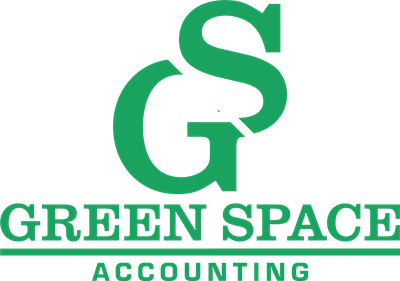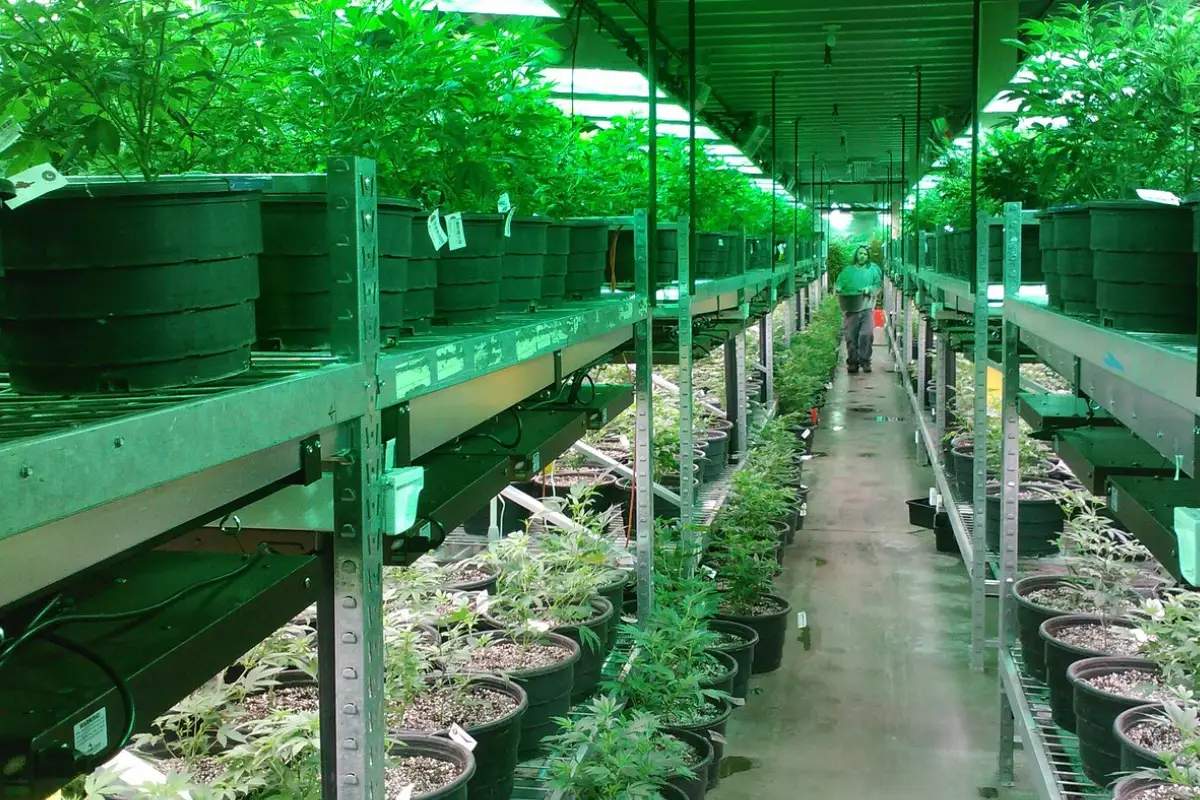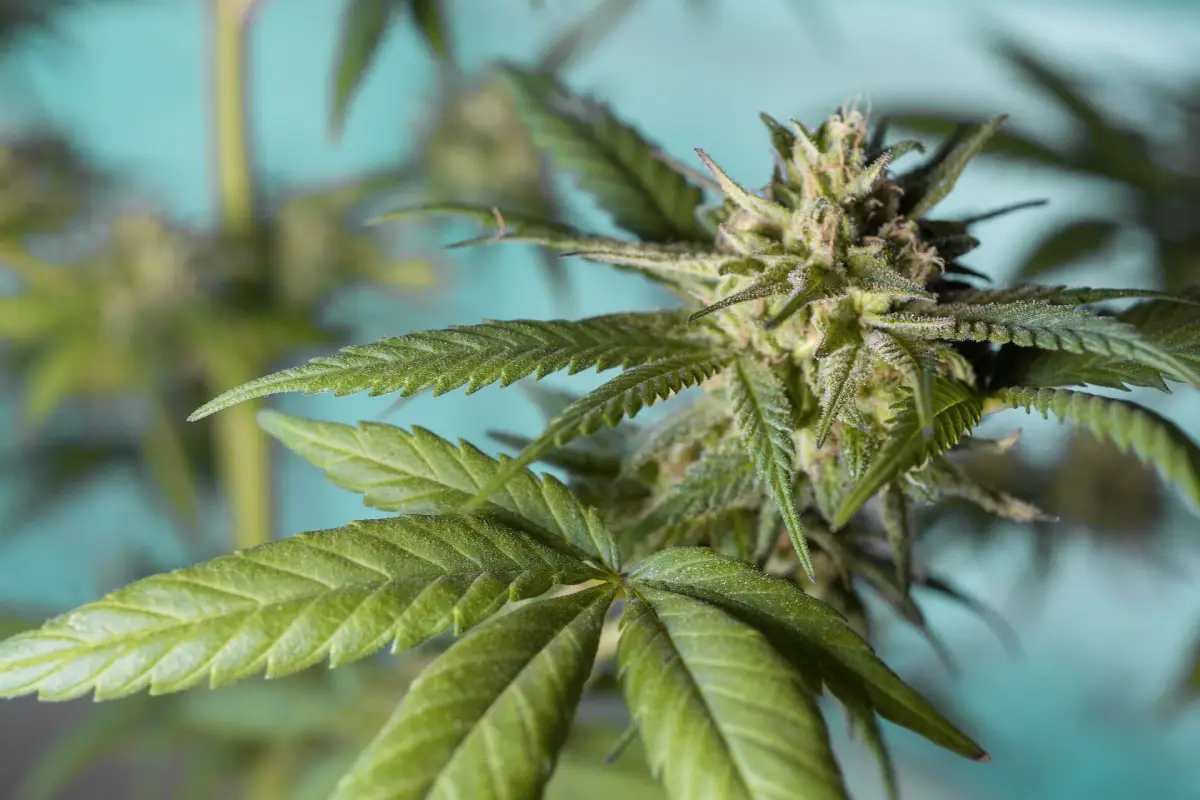
Maryland cannabis compliance is similar to other states with a few minor changes in taxation. Operating a business in the cannabis industry is hard, but knowing Maryland cannabis laws can help you stay in business.
This guide dives into Maryland’s cannabis compliance laws for those looking to stay ahead in the state.
Licensing Process For Maryland Cannabis Businesses
With many cannabis compliance rules, there’s one thing you need and that is licensing. Licensing gets your business the stamp of approval to run securely and legally, but you need to go through a process to do so before you can operate.
Types
Before we get into the types, you should know there are two licensing options: a micro license and a standard license.
These licensees give you a certain amount you can grow and produce in your cannabis business. For example; a grow cultivation with a micro license can only grow a certain amount, typically a micro quantity, to operate the facility. Depending on what you’re going after, the license can allow you to have a larger or smaller operation.
Other than these distinct types, there are many types of licenses from cultivation, manufacturing, transporting, testing, and selling.
- Cultivation license: This allows you to grow legally and sell your products to cannabis retail stores.
- Manufacturing license: The license here can permit you to manufacture all types of cannabis products from vapes, tinctures, and soft gels, to name a few.
- Transporting license: This allows you to transport any cannabis product within the state of Maryland to a cannabis business or distributor.
- Testing license: Getting a testing license gives you the right to test cannabis products for their potency, toxicity, and contents.
- Selling license: You can sell cannabis in a retail store or your own dispensary with this license.
You can get these licenses and follow Maryland cannabis compliance regulations to keep your license.
Getting A License
When getting a license you need to look under the Maryland Cannabis Administration to see if they are accepting any application licenses for medical or recreational.
Recently, Maryland’s legalization of recreational cannabis has passed so they may be accepting licenses soon.
However, they are only accepting social equity licenses, as of now. It’s best to do your research and see if you can apply or if you have to wait for the next series of licensing approvals.
You also must meet the licensing requirements before you can apply. Every state like Maryland has its guidelines for licenses and all have different qualifications to apply. You can learn more about the license application guide in every state, especially in Maryland as they all have diverse qualifications.
There are also fees associated so you’ll need to budget for that as well. From there you can get a license and follow Maryland cannabis compliance regulations. With that being said, now let’s move on to how you can start seed-to-sale tracking and record keeping.
Seed To Sale Tracking And Record-Keeping
Seed-to-sale tracking and record keeping in Maryland must occur to stay in compliance with the state’s regulations.
Maryland’s Seed-To-Sale Tracking System.
A seed-to-sale software tracking system is what regulators require to track the sale of a cannabis plant coming from germination of seed to full bud growth for selling. When this occurs, cannabis operations must track the plant’s entire life cycle to maintain compliance.
Without tracking, it can lead to unnecessary consequences that can have your license revoked.
You can clearly track your inventory with a seed-to-sale system and record all necessary information about your business finances. But it’s more than tracking inventory as you also have to make sure you have all your proper records in order. We’ll jump into this next.
Best Practices For Maintaining Proper Records
To maintain proper records for your business, you need to track then record all information like all business expenses, including purchases, payroll, utilities, equipment, and more. Make sure to keep these records in a safe place.
Doing daily and weekly record-keeping is essential so you don’t lose anything. When you keep proper records, you can do your taxes appropriately.
Overall, record all transactions with receipts, invoices, and sales reports. Utilize point-of-sale (POS) systems that integrate with accounting software.
Cannabis Compliance Tax Obligations For Cannabis Businesses
All cannabis companies have tax obligations and your business is no different. We are exploring more about the tax requirements and preparation for tax season now.
Maryland Tax Requirement
In Maryland, you must pay sales and excise taxes and keep in line with other tax obligations. This is a part of Maryland cannabis laws you need to know about.
1. Excise Tax on Cannabis Sales
- Adult-Use Sales: Maryland imposes a 9% excise tax on the retail sale of adult-use cannabis. This is separate from the standard sales tax and applies specifically to recreational cannabis transactions.
- Medical Cannabis: Medical cannabis sales are exempt from the excise tax. However, medical cannabis patients must present a valid medical cannabis card to qualify for the exemption.
2. Sales and Use Tax
- Sales Tax: Maryland’s 6% sales and use tax does not apply to adult-use cannabis due to the 9% excise tax taking its place. However, sales tax applies to the sale of non-cannabis products such as paraphernalia, accessories, and other retail items sold by dispensaries.
- Medical Cannabis Exemption: Medical cannabis remains exempt from the standard state sales tax.
3. Section 280E Tax
Like all cannabis businesses, Maryland companies are subject to IRS Section 280E. This federal tax code prohibits deductions of ordinary business expenses related to the sale of federally controlled substances (like cannabis). Cannabis companies may only deduct the cost of goods sold (COGS), not operating expenses, which can increase their tax liability.
How To Prepare For Tax Season
It’s important to prepare for tax season and stay ahead of Maryland cannabis compliance regulations.
1. Income
- Returns + Allowances
- Gross Receipts
- Other income coming in the business
- Checking & Savings account interest (1099-INT or other statement)
2. Cost Of Goods Sold (COGS)
You can deduct certain expenses with the 280e loophole. These expenses can be the following;
- Inventory
- Cleaning
- Security
- Trimming
- Curing
- Supplies and materials
- Packaging
- Indirect costs associated with creating the product such as maintenance equipment and quality control.
3. Miscellaneous Documents
- (P&L) Profit and loss statement
- Logs dealt with cash handling
- Tax returns in the past 2 years
- Sellers permit number
- Articles of incorporation
- Balance Sheet
- Monthly bank statements
- Ownership list like owners partners and related. Also their ownership percentage and SSN for all.
- Building lease and other building information
- IRS-issued employee ID number (EIN)
- New assets list purchased and receipts of purchase
- POS information login
4. Expenses
- Inventory
- Cultivation
- Labor and Contract labor: Forms 1099-MISC and 1096
- Testing
- Manufacturing
- Utilities
- Packaging
- Salaries
- Payroll Taxes
- Benefits
- Training
- Insurance
- Rent
- Office Supplies
- Marketing
- Professional Fees
- Compliance
- Security
- Transportation
- Distribution
- Depreciation
- Amortization
- Banking
- Loan Interest
- Travel
- Bad Debts
- Miscellaneous
- Inventory Valuation
- State Taxes
- Federal Taxes
- Excise Taxes
These are most of what you’re going to need to file your tax returns every year. It’s best to keep all information in a safe place and record all information throughout the year.
Going Through Audits And Inspections
To maintain Maryland cannabis compliance regulations, it’s necessary to keep all your ducks in a row by having your financial records, bank statements, utility statements, and other important documents in working order. Make sure to have them ready in case the auditor seeks more information about them.
Most auditors have their own methods of reviewing your business operation and would rather see your business comply with the laws. It’s best to organize all your records and review your tax returns before the audit takes place. This can give you the best possible chance of passing an audit inspection.
However, to even further pass an auditing procedure, you can work with professional cannabis accountants like Green Space Accounting. We help you become prepared before an audit takes place and ensure you cover all the basics so you can pass with flying colors.
How To Handle Inspections From Maryland Cannabis Compliance Regulators
We recommend you have all your documents from sales receipts, inventory costs, other income and financial records, to bank statements and other important information a state regulator may want.
If you want to stay even more ready to handle inspections, you can contact Maryland’s local authorities who deal with inspections and ask them what you may need to stay prepared. By preparing early for Maryland cannabis compliance regulations you can handle inspections with ease.
Otherwise, you can work with accounting experts who specialize in working alongside cannabis owners in the industry.
Where To Find Maryland Cannabis Compliance Help?
Find Accounting Experts
Accounting experts who specialize in the cannabis industry are your best bet to maintain cannabis compliance within the cannabis industry. We at Green Space Accounting work closely with all businesses in the industry, especially dispensaries in the state of Maryland and beyond. We help you get a handle on all of Maryland cannabis laws so you can operate securely.




